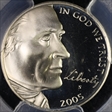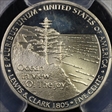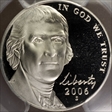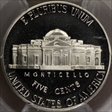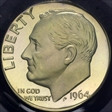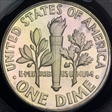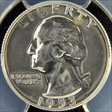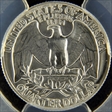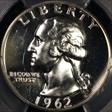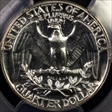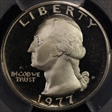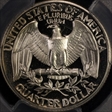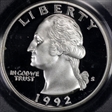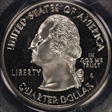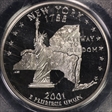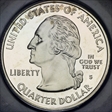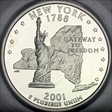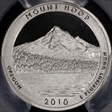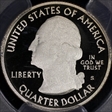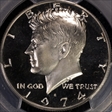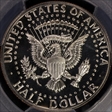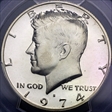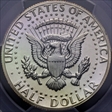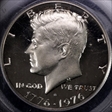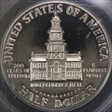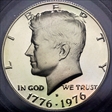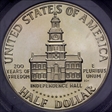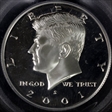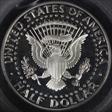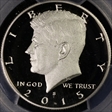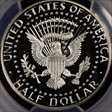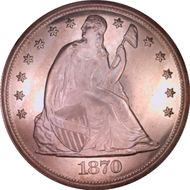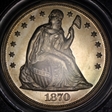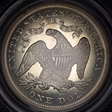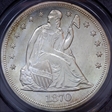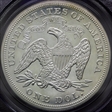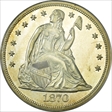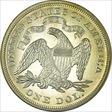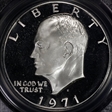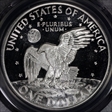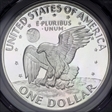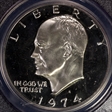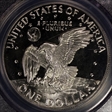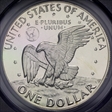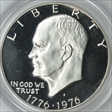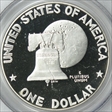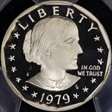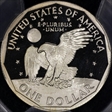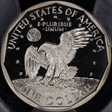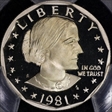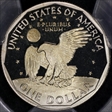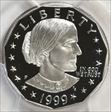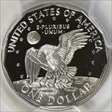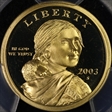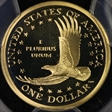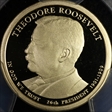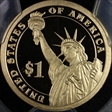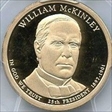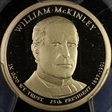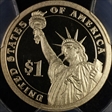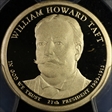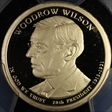The Kankakee Collection 的钱币相册
CAC. 9 at MS64, none finer. Manley Die State 2.0 with indistinct dentils on the obverse and upper reverse. Although Cohen lists 13 varieties, C-13 is promptly attributed by its Plain 4 and absent stems. This boldly struck near-Gem retains ample brick-red, although the portrait and fields are gunmetal-gray. Refreshingly free from abrasions. EAC grade MS63
CAC. 9 at MS64, none finer. Manley Die State 2.0 with indistinct dentils on the obverse and upper reverse. Although Cohen lists 13 varieties, C-13 is promptly attributed by its Plain 4 and absent stems. This boldly struck near-Gem retains ample brick-red, although the portrait and fields are gunmetal-gray. Refreshingly free from abrasions. EAC grade MS63
A medium brown cent with glimpses of lighter mahogany toning. Marks are trivial save for wispy field abrasions near the hair ribbon
A medium brown cent with glimpses of lighter mahogany toning. Marks are trivial save for wispy field abrasions near the hair ribbon
A medium brown cent with glimpses of lighter mahogany toning. Marks are trivial save for wispy field abrasions near the hair ribbon
CAC. This is a high grade example with much underlying glossy luster still evident beneath golden-brown and gunmetal surfaces. Well struck overall and only lightly abraded.Ex: Ramont (2/1995), Jules Reiver Collection (Heritage, 1/2006)(as NGC AU55)
CAC. This is a high grade example with much underlying glossy luster still evident beneath golden-brown and gunmetal surfaces. Well struck overall and only lightly abraded.Ex: Ramont (2/1995), Jules Reiver Collection (Heritage, 1/2006)(as NGC AU55)
Razor-sharp definition shows on the feather tips and diamonds and the lightly toned surfaces of this attractive Gem show only the most insignificant signs of contact. PCGS has graded 27 numerically finer examples
Razor-sharp definition shows on the feather tips and diamonds and the lightly toned surfaces of this attractive Gem show only the most insignificant signs of contact. PCGS has graded 27 numerically finer examples
Razor-sharp definition shows on the feather tips and diamonds and the lightly toned surfaces of this attractive Gem show only the most insignificant signs of contact. PCGS has graded 27 numerically finer examples
Razor-sharp definition shows on the feather tips and diamonds and the lightly toned surfaces of this attractive Gem show only the most insignificant signs of contact. PCGS has graded 27 numerically finer examples
Full Steps Silver "War Nickel". Golden/Amber toning in center of coin. Heavier toning on Obverse than on the Reverse.
Full Steps Silver "War Nickel". Golden/Amber toning in center of coin. Heavier toning on Obverse than on the Reverse.
Full Steps Silver "War Nickel". Golden/Amber toning in center of coin. Heavier toning on Obverse than on the Reverse.
Full Steps Silver "War Nickel". Golden/Amber toning in center of coin. Heavier toning on Obverse than on the Reverse.
Full Steps Silver "War Nickel". Golden/Amber toning in center of coin. Heavier toning on Obverse than on the Reverse.
JR-9. The 83 in the date are repunched. This sharply struck and lustrous representative has a brilliant obverse. The reverse displays light olive-green and lavender shades.
JR-9. The 83 in the date are repunched. This sharply struck and lustrous representative has a brilliant obverse. The reverse displays light olive-green and lavender shades.
JR-9. The 83 in the date are repunched. This sharply struck and lustrous representative has a brilliant obverse. The reverse displays light olive-green and lavender shades.
JR-9. The 83 in the date are repunched. This sharply struck and lustrous representative has a brilliant obverse. The reverse displays light olive-green and lavender shades.
1837 10C No Stars, Large Date, F-101b, R.2, AU58 PCGS. Dual radial cracks on the lower obverse, and the absence of clash marks on the reverse, confirm the intermediate die state for the Large Date variety. A satiny stone-white representative that has an even strike and few marks.
1837 10C No Stars, Large Date, F-101b, R.2, AU58 PCGS. Dual radial cracks on the lower obverse, and the absence of clash marks on the reverse, confirm the intermediate die state for the Large Date variety. A satiny stone-white representative that has an even strike and few marks.
1837 10C No Stars, Large Date, F-101b, R.2, AU58 PCGS. Dual radial cracks on the lower obverse, and the absence of clash marks on the reverse, confirm the intermediate die state for the Large Date variety. A satiny stone-white representative that has an even strike and few marks.
1837 10C No Stars, Large Date, F-101b, R.2, AU58 PCGS. Dual radial cracks on the lower obverse, and the absence of clash marks on the reverse, confirm the intermediate die state for the Large Date variety. A satiny stone-white representative that has an even strike and few marks.
only 12 Finer in PCGS. Pleasing Olive/Aqua toning on both obverse and reverse on this Gem example.
only 12 Finer in PCGS. Pleasing Olive/Aqua toning on both obverse and reverse on this Gem example.
only 12 Finer in PCGS. Pleasing Olive/Aqua toning on both obverse and reverse on this Gem example.
only 12 Finer in PCGS. Pleasing Olive/Aqua toning on both obverse and reverse on this Gem example.
B-2 (Browning). This lovely Select Mint State example is tied for the eighth finest according to the Rea-Koenings-Haroutunian Condition Census that is presented in Early Quarter Dollars of the US Mint (2010). The obverse is cracked from the hair curl to the three lowest stars on the right, apparently as always. This variety was produced before 1832 B-1. Both sides exhibit frosty mint luster with delicate gold, champagne, and steel toning on the ivory surfaces. Population: 13 in 63, 16 finer
B-2 (Browning). This lovely Select Mint State example is tied for the eighth finest according to the Rea-Koenings-Haroutunian Condition Census that is presented in Early Quarter Dollars of the US Mint (2010). The obverse is cracked from the hair curl to the three lowest stars on the right, apparently as always. This variety was produced before 1832 B-1. Both sides exhibit frosty mint luster with delicate gold, champagne, and steel toning on the ivory surfaces. Population: 13 in 63, 16 finer
B-2 (Browning). This lovely Select Mint State example is tied for the eighth finest according to the Rea-Koenings-Haroutunian Condition Census that is presented in Early Quarter Dollars of the US Mint (2010). The obverse is cracked from the hair curl to the three lowest stars on the right, apparently as always. This variety was produced before 1832 B-1. Both sides exhibit frosty mint luster with delicate gold, champagne, and steel toning on the ivory surfaces. Population: 13 in 63, 16 finer
B-2 (Browning). This lovely Select Mint State example is tied for the eighth finest according to the Rea-Koenings-Haroutunian Condition Census that is presented in Early Quarter Dollars of the US Mint (2010). The obverse is cracked from the hair curl to the three lowest stars on the right, apparently as always. This variety was produced before 1832 B-1. Both sides exhibit frosty mint luster with delicate gold, champagne, and steel toning on the ivory surfaces. Population: 13 in 63, 16 finer
Briggs 1-A, showing a die break from the lower left rear of the arrow to the 1 in the date, and die scratches on the reverse above TAT and ME. A curious and interesting example of this type issue, struck from dies that appear to have been axially misaligned, creating a sharp strike at areas near the rims on each side and notable weakness in other peripheral areas. The weakest area of strike on the obverse is 9 to 12 o'clock, and on the reverse 6 to 9. Attractive sandy-gold luster with deeper rose color and a patch of pale blue complement the overall good eye appeal and decent preservation. Population: 18 in 64, 11 finer
Briggs 1-A, showing a die break from the lower left rear of the arrow to the 1 in the date, and die scratches on the reverse above TAT and ME. A curious and interesting example of this type issue, struck from dies that appear to have been axially misaligned, creating a sharp strike at areas near the rims on each side and notable weakness in other peripheral areas. The weakest area of strike on the obverse is 9 to 12 o'clock, and on the reverse 6 to 9. Attractive sandy-gold luster with deeper rose color and a patch of pale blue complement the overall good eye appeal and decent preservation. Population: 18 in 64, 11 finer
Briggs 1-A, showing a die break from the lower left rear of the arrow to the 1 in the date, and die scratches on the reverse above TAT and ME. A curious and interesting example of this type issue, struck from dies that appear to have been axially misaligned, creating a sharp strike at areas near the rims on each side and notable weakness in other peripheral areas. The weakest area of strike on the obverse is 9 to 12 o'clock, and on the reverse 6 to 9. Attractive sandy-gold luster with deeper rose color and a patch of pale blue complement the overall good eye appeal and decent preservation. Population: 18 in 64, 11 finer
Briggs 1-A, showing a die break from the lower left rear of the arrow to the 1 in the date, and die scratches on the reverse above TAT and ME. A curious and interesting example of this type issue, struck from dies that appear to have been axially misaligned, creating a sharp strike at areas near the rims on each side and notable weakness in other peripheral areas. The weakest area of strike on the obverse is 9 to 12 o'clock, and on the reverse 6 to 9. Attractive sandy-gold luster with deeper rose color and a patch of pale blue complement the overall good eye appeal and decent preservation. Population: 18 in 64, 11 finer
Briggs 1-A, showing a die break from the lower left rear of the arrow to the 1 in the date, and die scratches on the reverse above TAT and ME. A curious and interesting example of this type issue, struck from dies that appear to have been axially misaligned, creating a sharp strike at areas near the rims on each side and notable weakness in other peripheral areas. The weakest area of strike on the obverse is 9 to 12 o'clock, and on the reverse 6 to 9. Attractive sandy-gold luster with deeper rose color and a patch of pale blue complement the overall good eye appeal and decent preservation. Population: 18 in 64, 11 finer
Briggs 1-A, showing a die break from the lower left rear of the arrow to the 1 in the date, and die scratches on the reverse above TAT and ME. A curious and interesting example of this type issue, struck from dies that appear to have been axially misaligned, creating a sharp strike at areas near the rims on each side and notable weakness in other peripheral areas. The weakest area of strike on the obverse is 9 to 12 o'clock, and on the reverse 6 to 9. Attractive sandy-gold luster with deeper rose color and a patch of pale blue complement the overall good eye appeal and decent preservation. Population: 18 in 64, 11 finer
Briggs 1-A. Forest-green and tobacco-brown toning accompanies the borders, while the fields and motifs are principally brilliant. A crisply struck, frosty, and thoroughly lustrous Premium Gem that boasts superior eye appeal. PCGS reports just five numerically finer examples. Population: 36 in 66 (2 in 66+), 5 finer
Briggs 1-A. Forest-green and tobacco-brown toning accompanies the borders, while the fields and motifs are principally brilliant. A crisply struck, frosty, and thoroughly lustrous Premium Gem that boasts superior eye appeal. PCGS reports just five numerically finer examples. Population: 36 in 66 (2 in 66+), 5 finer
Briggs 1-A. Forest-green and tobacco-brown toning accompanies the borders, while the fields and motifs are principally brilliant. A crisply struck, frosty, and thoroughly lustrous Premium Gem that boasts superior eye appeal. PCGS reports just five numerically finer examples. Population: 36 in 66 (2 in 66+), 5 finer
Briggs 1-A. Forest-green and tobacco-brown toning accompanies the borders, while the fields and motifs are principally brilliant. A crisply struck, frosty, and thoroughly lustrous Premium Gem that boasts superior eye appeal. PCGS reports just five numerically finer examples. Population: 36 in 66 (2 in 66+), 5 finer
CAC. PCGS has seen 19 submissions in MS66 (one in MS66+) and three finer. This is among six in this grade with the CAC green bean.The stars on this lavishly patinated Premium Gem show full centers and radial lines. Definition is equally bold on Liberty's head, the eagle's wing feathers, claws, and arrow fletchings. Briggs 2a. Perhaps 800 total survive.
CAC. PCGS has seen 19 submissions in MS66 (one in MS66+) and three finer. This is among six in this grade with the CAC green bean.The stars on this lavishly patinated Premium Gem show full centers and radial lines. Definition is equally bold on Liberty's head, the eagle's wing feathers, claws, and arrow fletchings. Briggs 2a. Perhaps 800 total survive.
CAC. PCGS has seen 19 submissions in MS66 (one in MS66+) and three finer. This is among six in this grade with the CAC green bean.The stars on this lavishly patinated Premium Gem show full centers and radial lines. Definition is equally bold on Liberty's head, the eagle's wing feathers, claws, and arrow fletchings. Briggs 2a. Perhaps 800 total survive.
CAC. PCGS has seen 19 submissions in MS66 (one in MS66+) and three finer. This is among six in this grade with the CAC green bean.The stars on this lavishly patinated Premium Gem show full centers and radial lines. Definition is equally bold on Liberty's head, the eagle's wing feathers, claws, and arrow fletchings. Briggs 2a. Perhaps 800 total survive.
CAC. PCGS has seen 19 submissions in MS66 (one in MS66+) and three finer. This is among six in this grade with the CAC green bean.The stars on this lavishly patinated Premium Gem show full centers and radial lines. Definition is equally bold on Liberty's head, the eagle's wing feathers, claws, and arrow fletchings. Briggs 2a. Perhaps 800 total survive.
CAC. PCGS has seen 19 submissions in MS66 (one in MS66+) and three finer. This is among six in this grade with the CAC green bean.The stars on this lavishly patinated Premium Gem show full centers and radial lines. Definition is equally bold on Liberty's head, the eagle's wing feathers, claws, and arrow fletchings. Briggs 2a. Perhaps 800 total survive.
A luminous and richly toned example from the first year of the HALF DOL. reverse subtype. Apricot, peach, rose-violet, and blue hues mingle on each side, and a streak of deep toning descends from the word OF to the eagle's right (facing) wing
A luminous and richly toned example from the first year of the HALF DOL. reverse subtype. Apricot, peach, rose-violet, and blue hues mingle on each side, and a streak of deep toning descends from the word OF to the eagle's right (facing) wing
A luminous and richly toned example from the first year of the HALF DOL. reverse subtype. Apricot, peach, rose-violet, and blue hues mingle on each side, and a streak of deep toning descends from the word OF to the eagle's right (facing) wing
A luminous and richly toned example from the first year of the HALF DOL. reverse subtype. Apricot, peach, rose-violet, and blue hues mingle on each side, and a streak of deep toning descends from the word OF to the eagle's right (facing) wing
A luminous and richly toned example from the first year of the HALF DOL. reverse subtype. Apricot, peach, rose-violet, and blue hues mingle on each side, and a streak of deep toning descends from the word OF to the eagle's right (facing) wing
A luminous and richly toned example from the first year of the HALF DOL. reverse subtype. Apricot, peach, rose-violet, and blue hues mingle on each side, and a streak of deep toning descends from the word OF to the eagle's right (facing) wing
This Select 1850-O half is largely untoned and frosty, showing abundant luster amid a few small scrapes. A scarce variety, with doubling on the upper vertical obverse shield lines and shield edge. Two knocks on Liberty's knees are the only mentionable marks, making this an appealing and well-struck candidate for a type, date, or variety set.
This Select 1850-O half is largely untoned and frosty, showing abundant luster amid a few small scrapes. A scarce variety, with doubling on the upper vertical obverse shield lines and shield edge. Two knocks on Liberty's knees are the only mentionable marks, making this an appealing and well-struck candidate for a type, date, or variety set.
This Select 1850-O half is largely untoned and frosty, showing abundant luster amid a few small scrapes. A scarce variety, with doubling on the upper vertical obverse shield lines and shield edge. Two knocks on Liberty's knees are the only mentionable marks, making this an appealing and well-struck candidate for a type, date, or variety set.
This Select 1850-O half is largely untoned and frosty, showing abundant luster amid a few small scrapes. A scarce variety, with doubling on the upper vertical obverse shield lines and shield edge. Two knocks on Liberty's knees are the only mentionable marks, making this an appealing and well-struck candidate for a type, date, or variety set.
Only 8000 struck,perhaps 200 Unc. survive. 31 finer. Brilliant aside from delicate wisps of golden-russet toning at the borders, this frosty near-Gem is irregularly struck with needle-sharp centers and a hint of softness at the upper obverse and corresponding area on the reverse
Only 8000 struck,perhaps 200 Unc. survive. 31 finer. Brilliant aside from delicate wisps of golden-russet toning at the borders, this frosty near-Gem is irregularly struck with needle-sharp centers and a hint of softness at the upper obverse and corresponding area on the reverse
Only 8000 struck,perhaps 200 Unc. survive. 31 finer. Brilliant aside from delicate wisps of golden-russet toning at the borders, this frosty near-Gem is irregularly struck with needle-sharp centers and a hint of softness at the upper obverse and corresponding area on the reverse
Only 8000 struck,perhaps 200 Unc. survive. 31 finer. Brilliant aside from delicate wisps of golden-russet toning at the borders, this frosty near-Gem is irregularly struck with needle-sharp centers and a hint of softness at the upper obverse and corresponding area on the reverse
Only 8000 struck,perhaps 200 Unc. survive. 31 finer. Brilliant aside from delicate wisps of golden-russet toning at the borders, this frosty near-Gem is irregularly struck with needle-sharp centers and a hint of softness at the upper obverse and corresponding area on the reverse
Only 8000 struck,perhaps 200 Unc. survive. 31 finer. Brilliant aside from delicate wisps of golden-russet toning at the borders, this frosty near-Gem is irregularly struck with needle-sharp centers and a hint of softness at the upper obverse and corresponding area on the reverse
1859-O $1 MS60 PCGS. An undeniably Mint State example, this 1859-O Seated Liberty dollar displays fresh, frosty devices set against mirrored fields that show just a touch of light golden toning. Well-struck, with scattered abrasions pursuant to the grade. Housed in a first generation holder.One or more bags of 1859-O and 1860-O Seated silver dollars remained in Treasury vaults until they were released a little over 50 years ago. Today, most low level Mint State examples of these two issues are from that source. This brilliant silver example is likely one of those coins, featuring reflective fields and scattered grade-consistent surface marks
1859-O $1 MS60 PCGS. An undeniably Mint State example, this 1859-O Seated Liberty dollar displays fresh, frosty devices set against mirrored fields that show just a touch of light golden toning. Well-struck, with scattered abrasions pursuant to the grade. Housed in a first generation holder.One or more bags of 1859-O and 1860-O Seated silver dollars remained in Treasury vaults until they were released a little over 50 years ago. Today, most low level Mint State examples of these two issues are from that source. This brilliant silver example is likely one of those coins, featuring reflective fields and scattered grade-consistent surface marks
1859-O $1 MS60 PCGS. An undeniably Mint State example, this 1859-O Seated Liberty dollar displays fresh, frosty devices set against mirrored fields that show just a touch of light golden toning. Well-struck, with scattered abrasions pursuant to the grade. Housed in a first generation holder.One or more bags of 1859-O and 1860-O Seated silver dollars remained in Treasury vaults until they were released a little over 50 years ago. Today, most low level Mint State examples of these two issues are from that source. This brilliant silver example is likely one of those coins, featuring reflective fields and scattered grade-consistent surface marks
1859-O $1 MS60 PCGS. An undeniably Mint State example, this 1859-O Seated Liberty dollar displays fresh, frosty devices set against mirrored fields that show just a touch of light golden toning. Well-struck, with scattered abrasions pursuant to the grade. Housed in a first generation holder.One or more bags of 1859-O and 1860-O Seated silver dollars remained in Treasury vaults until they were released a little over 50 years ago. Today, most low level Mint State examples of these two issues are from that source. This brilliant silver example is likely one of those coins, featuring reflective fields and scattered grade-consistent surface marks
1859-O $1 MS60 PCGS. An undeniably Mint State example, this 1859-O Seated Liberty dollar displays fresh, frosty devices set against mirrored fields that show just a touch of light golden toning. Well-struck, with scattered abrasions pursuant to the grade. Housed in a first generation holder.One or more bags of 1859-O and 1860-O Seated silver dollars remained in Treasury vaults until they were released a little over 50 years ago. Today, most low level Mint State examples of these two issues are from that source. This brilliant silver example is likely one of those coins, featuring reflective fields and scattered grade-consistent surface marks
1859-O $1 MS60 PCGS. An undeniably Mint State example, this 1859-O Seated Liberty dollar displays fresh, frosty devices set against mirrored fields that show just a touch of light golden toning. Well-struck, with scattered abrasions pursuant to the grade. Housed in a first generation holder.One or more bags of 1859-O and 1860-O Seated silver dollars remained in Treasury vaults until they were released a little over 50 years ago. Today, most low level Mint State examples of these two issues are from that source. This brilliant silver example is likely one of those coins, featuring reflective fields and scattered grade-consistent surface marks
WE and STATES are nicely die doubled, one of the few DDR varieties overlooked by Kevin Flynn in his recently published reference to the series. Brilliant and appealing for the designated grade. The strike shows minor softness on portions of the eagle and the right-side stars. Housed in an old green label holder.
WE and STATES are nicely die doubled, one of the few DDR varieties overlooked by Kevin Flynn in his recently published reference to the series. Brilliant and appealing for the designated grade. The strike shows minor softness on portions of the eagle and the right-side stars. Housed in an old green label holder.
WE and STATES are nicely die doubled, one of the few DDR varieties overlooked by Kevin Flynn in his recently published reference to the series. Brilliant and appealing for the designated grade. The strike shows minor softness on portions of the eagle and the right-side stars. Housed in an old green label holder.
Rich plum and emerald-blue hues frame otherwise snowy surfaces across this alluring Choice Mint State piece. The viewer is confronted with a lustrous complexion and smooth fields that cradle sharp devices on each sides. Even the vulnerable regions are left remarkably unscathed, contributing to an aesthetic far superior to what is typically seen at the assigned grade. Worthy of careful inspection.
Rich plum and emerald-blue hues frame otherwise snowy surfaces across this alluring Choice Mint State piece. The viewer is confronted with a lustrous complexion and smooth fields that cradle sharp devices on each sides. Even the vulnerable regions are left remarkably unscathed, contributing to an aesthetic far superior to what is typically seen at the assigned grade. Worthy of careful inspection.
10800 minted. 682 PCGS certified, 83 in MS 65. Coinfacts- 65 or better R-5.8
10800 minted. 682 PCGS certified, 83 in MS 65. Coinfacts- 65 or better R-5.8
10800 minted. 682 PCGS certified, 83 in MS 65. Coinfacts- 65 or better R-5.8
10800 minted. 682 PCGS certified, 83 in MS 65. Coinfacts- 65 or better R-5.8
With a mintage of only 1,920 pieces, the 1883 quarter eagle is rare in Mint State. This near-Mint example shows prooflike fields and sharp design elements with rich, original orange-gold patina. A few light handling marks are not out of line for the grade. Housed in a first generation holder. Population: 20 in 58, 22 finer
With a mintage of only 1,920 pieces, the 1883 quarter eagle is rare in Mint State. This near-Mint example shows prooflike fields and sharp design elements with rich, original orange-gold patina. A few light handling marks are not out of line for the grade. Housed in a first generation holder. Population: 20 in 58, 22 finer
My rarest coin owned by mintage. Just 900 minted, and 146 cert. Although it is estimated 650 survive. This date is one of only three in the series that has an official mintage of less than 1,000 business strikes.
My rarest coin owned by mintage. Just 900 minted, and 146 cert. Although it is estimated 650 survive. This date is one of only three in the series that has an official mintage of less than 1,000 business strikes.
1883 $5 MS63 PCGS. A coruscating Select representative of a conditionally scarce and lower-mintage Philly issue. Peach-tinged centers are framed by a band of lime-green near the rims. Population: 73 in 63 (3 in 63+), 23 finer (8/16). Ex: New York Signature (Heritage, 12/2011), lot 4588; Long Beach Signature (Heritage, 2/2012), lot 4802; Dallas Signature (Heritage, 3/2013) From The Ohio Valley Collection
1883 $5 MS63 PCGS. A coruscating Select representative of a conditionally scarce and lower-mintage Philly issue. Peach-tinged centers are framed by a band of lime-green near the rims. Population: 73 in 63 (3 in 63+), 23 finer (8/16). Ex: New York Signature (Heritage, 12/2011), lot 4588; Long Beach Signature (Heritage, 2/2012), lot 4802; Dallas Signature (Heritage, 3/2013) From The Ohio Valley Collection
1883 $5 MS63 PCGS. A coruscating Select representative of a conditionally scarce and lower-mintage Philly issue. Peach-tinged centers are framed by a band of lime-green near the rims. Population: 73 in 63 (3 in 63+), 23 finer (8/16). Ex: New York Signature (Heritage, 12/2011), lot 4588; Long Beach Signature (Heritage, 2/2012), lot 4802; Dallas Signature (Heritage, 3/2013) From The Ohio Valley Collection
1883 $5 MS63 PCGS. A coruscating Select representative of a conditionally scarce and lower-mintage Philly issue. Peach-tinged centers are framed by a band of lime-green near the rims. Population: 73 in 63 (3 in 63+), 23 finer (8/16). Ex: New York Signature (Heritage, 12/2011), lot 4588; Long Beach Signature (Heritage, 2/2012), lot 4802; Dallas Signature (Heritage, 3/2013) From The Ohio Valley Collection
David Akers (1975/88): "The 1883-CC is very rare and underrated in all grades. It is much more rare than the 1879-CC, 1880-CC, 1882-CC or any Carson City Half Eagle of the 1890's and is nearly as rare as the 1881-CC."
David Akers (1975/88): "The 1883-CC is very rare and underrated in all grades. It is much more rare than the 1879-CC, 1880-CC, 1882-CC or any Carson City Half Eagle of the 1890's and is nearly as rare as the 1881-CC."
With Motto. Only 7 finer at PCGS. While examples of this Philadelphia five are generally available up to the MS63 level, Choice coins are notably scarce and full Gems are rare. This near-Gem coin displays natural medium-gold coloration and frosty luster befitting its elusive high grade. Population: 42 in 64.
With Motto. Only 7 finer at PCGS. While examples of this Philadelphia five are generally available up to the MS63 level, Choice coins are notably scarce and full Gems are rare. This near-Gem coin displays natural medium-gold coloration and frosty luster befitting its elusive high grade. Population: 42 in 64.
R-6.4 Variety 2-C. With a mintage of only 12,000 pieces, the 1883-CC ten is scarce in all grades and extremely rare in Mint State, with most such pieces showing heavy abrasions. This Choice AU representative is a more affordable alternative. The fields have light chatter but are nonetheless deeply reflective, and the design elements show trivial wear. Bright yellow-gold color blankets each side. Population: 12 in 55, 13 finer. Survival estimate 283, PCGS certified 163
R-6.4 Variety 2-C. With a mintage of only 12,000 pieces, the 1883-CC ten is scarce in all grades and extremely rare in Mint State, with most such pieces showing heavy abrasions. This Choice AU representative is a more affordable alternative. The fields have light chatter but are nonetheless deeply reflective, and the design elements show trivial wear. Bright yellow-gold color blankets each side. Population: 12 in 55, 13 finer. Survival estimate 283, PCGS certified 163
R-6.4 Variety 2-C. With a mintage of only 12,000 pieces, the 1883-CC ten is scarce in all grades and extremely rare in Mint State, with most such pieces showing heavy abrasions. This Choice AU representative is a more affordable alternative. The fields have light chatter but are nonetheless deeply reflective, and the design elements show trivial wear. Bright yellow-gold color blankets each side. Population: 12 in 55, 13 finer. Survival estimate 283, PCGS certified 163
R-6.4 Variety 2-C. With a mintage of only 12,000 pieces, the 1883-CC ten is scarce in all grades and extremely rare in Mint State, with most such pieces showing heavy abrasions. This Choice AU representative is a more affordable alternative. The fields have light chatter but are nonetheless deeply reflective, and the design elements show trivial wear. Bright yellow-gold color blankets each side. Population: 12 in 55, 13 finer. Survival estimate 283, PCGS certified 163
Mint green with subtle rose highlights. Deep Cameo Gem proof housed in a PCGS OGH slab.
Mint green with subtle rose highlights. Deep Cameo Gem proof housed in a PCGS OGH slab.
This Clad 2010-S Proof Mount Hood Quarter is the fifth design issued in the America the Beautiful Quarters Program.
This Clad 2010-S Proof Mount Hood Quarter is the fifth design issued in the America the Beautiful Quarters Program.
Pale champagne iridescence complements the frosty motifs and glittering mirror fields. Boldly struck virtually everywhere save for a touch of softness at the eagle's dexter shin. Only 1,000 proof dollars were struck during the year, and only15 finer exist with the PCGS Cameo designation.
Pale champagne iridescence complements the frosty motifs and glittering mirror fields. Boldly struck virtually everywhere save for a touch of softness at the eagle's dexter shin. Only 1,000 proof dollars were struck during the year, and only15 finer exist with the PCGS Cameo designation.
Pale champagne iridescence complements the frosty motifs and glittering mirror fields. Boldly struck virtually everywhere save for a touch of softness at the eagle's dexter shin. Only 1,000 proof dollars were struck during the year, and only15 finer exist with the PCGS Cameo designation.
Pale champagne iridescence complements the frosty motifs and glittering mirror fields. Boldly struck virtually everywhere save for a touch of softness at the eagle's dexter shin. Only 1,000 proof dollars were struck during the year, and only15 finer exist with the PCGS Cameo designation.
Pale champagne iridescence complements the frosty motifs and glittering mirror fields. Boldly struck virtually everywhere save for a touch of softness at the eagle's dexter shin. Only 1,000 proof dollars were struck during the year, and only15 finer exist with the PCGS Cameo designation.
Pale champagne iridescence complements the frosty motifs and glittering mirror fields. Boldly struck virtually everywhere save for a touch of softness at the eagle's dexter shin. Only 1,000 proof dollars were struck during the year, and only15 finer exist with the PCGS Cameo designation.
Pale champagne iridescence complements the frosty motifs and glittering mirror fields. Boldly struck virtually everywhere save for a touch of softness at the eagle's dexter shin. Only 1,000 proof dollars were struck during the year, and only15 finer exist with the PCGS Cameo designation.




















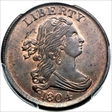
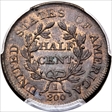
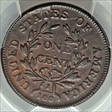
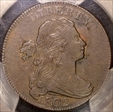
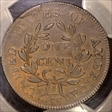
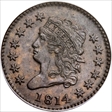
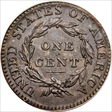
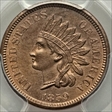
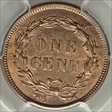
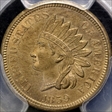
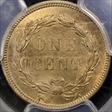


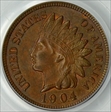
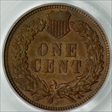
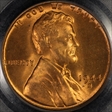
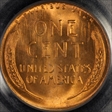
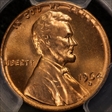
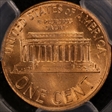
_album.jpg)
_album.jpg)
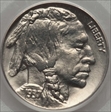
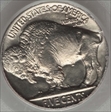
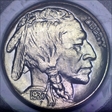
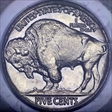
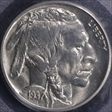
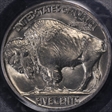
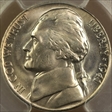
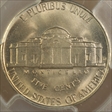
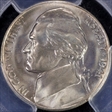
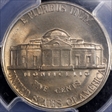
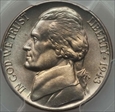
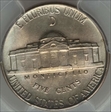
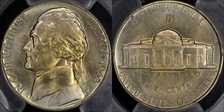
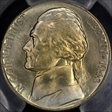
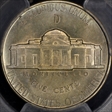
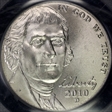
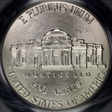
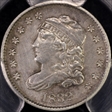
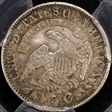


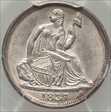
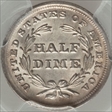
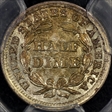
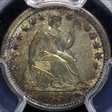
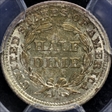
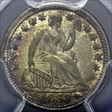
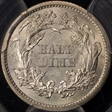
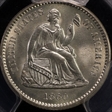
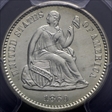
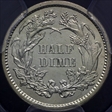
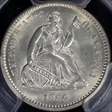
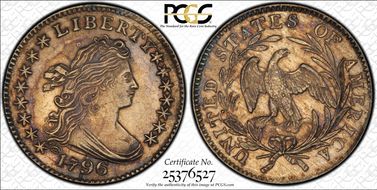
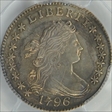
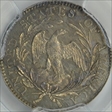
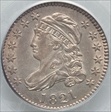
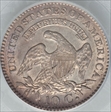
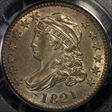
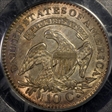
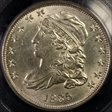
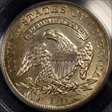
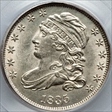
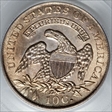
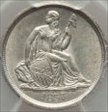
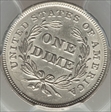
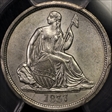
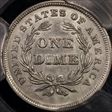
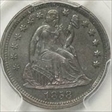
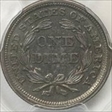
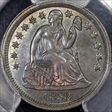
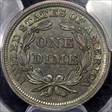
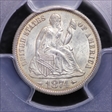
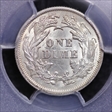
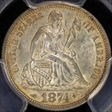
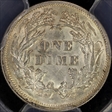
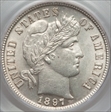
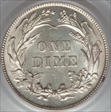
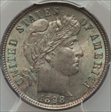
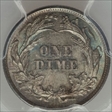
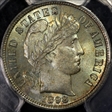
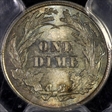
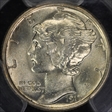
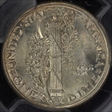
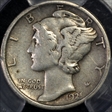
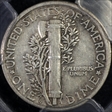
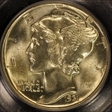
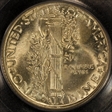
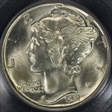
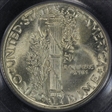
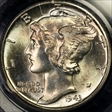
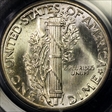
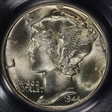
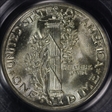
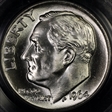
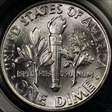
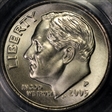
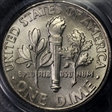
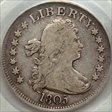
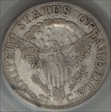
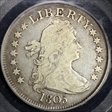
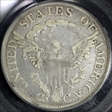
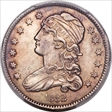
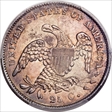
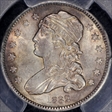
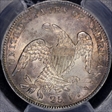


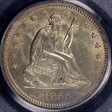
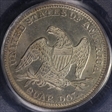
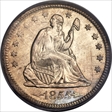
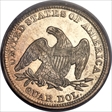
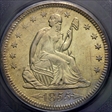
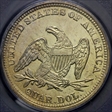
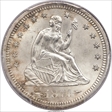
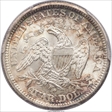
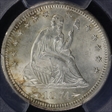
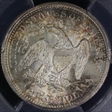
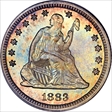
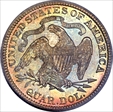
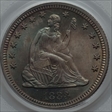
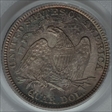
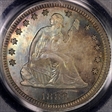
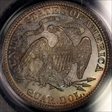
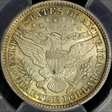
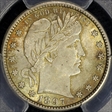

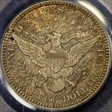
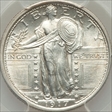
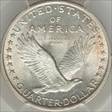
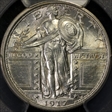
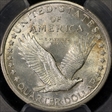
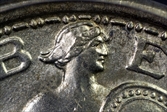
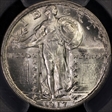
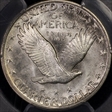
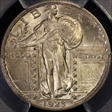
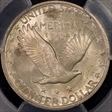
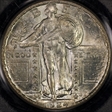
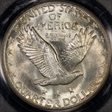
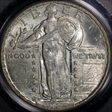
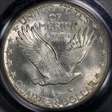
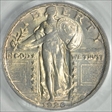
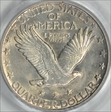


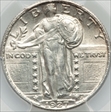
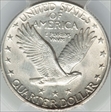
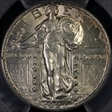
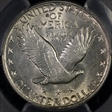
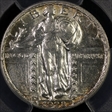
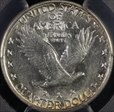
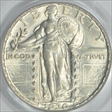
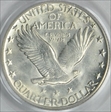
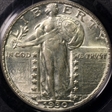
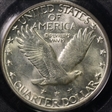
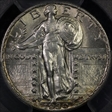
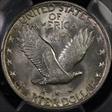
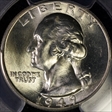
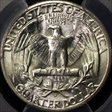


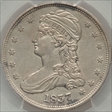
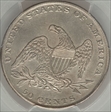
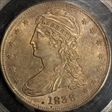
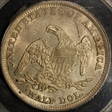
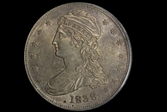
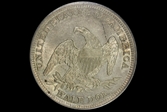
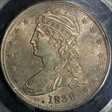
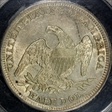
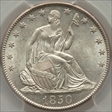
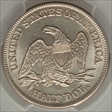
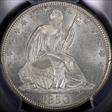
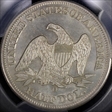
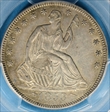
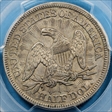
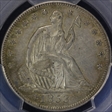
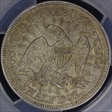
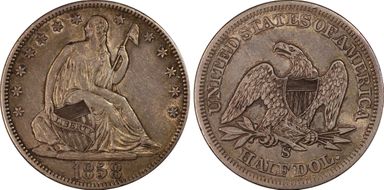




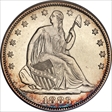
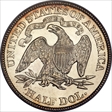
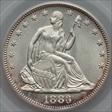
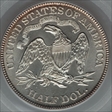
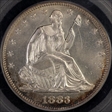
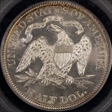
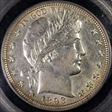
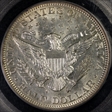

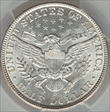
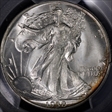
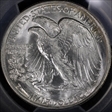
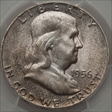
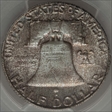
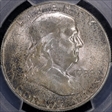
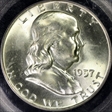
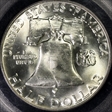
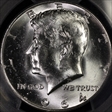
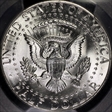
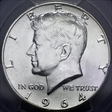
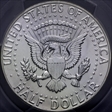


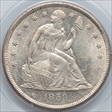
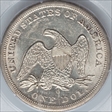
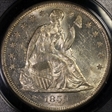
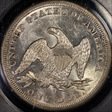
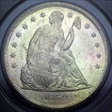
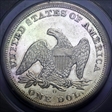
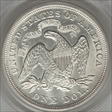
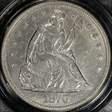
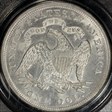
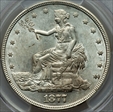
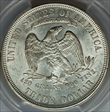
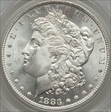
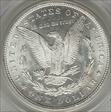
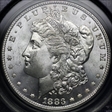
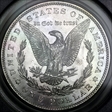
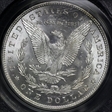
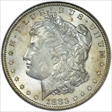
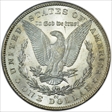
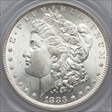
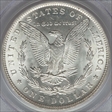
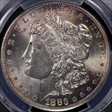
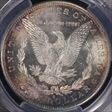
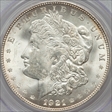
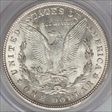
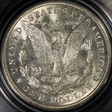
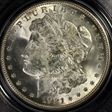
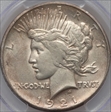
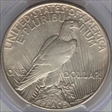
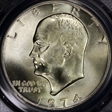
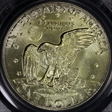




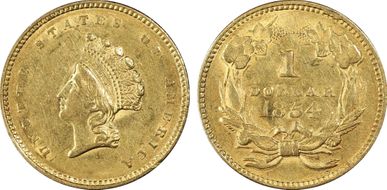
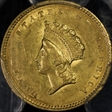
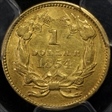
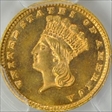
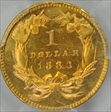
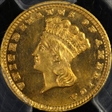
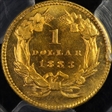


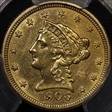
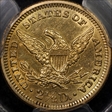
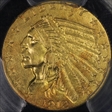
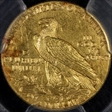
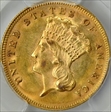
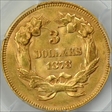


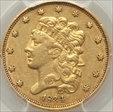
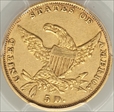
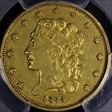
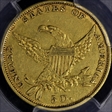




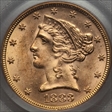
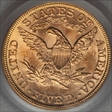
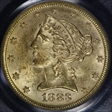
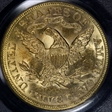
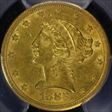
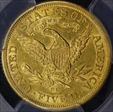
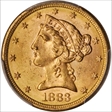
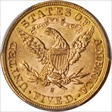
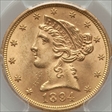
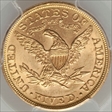
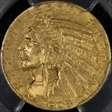
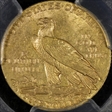




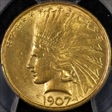
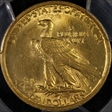
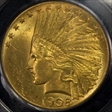
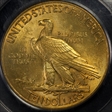
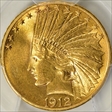
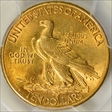
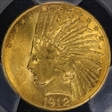
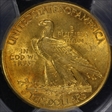
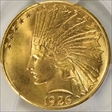
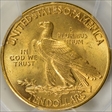
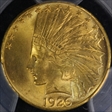
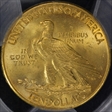






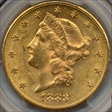
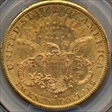
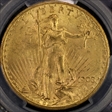
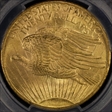
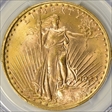
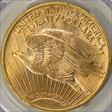
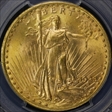
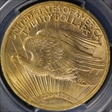
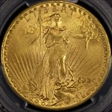
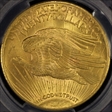
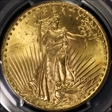
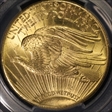
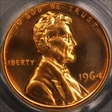
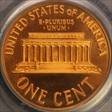
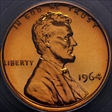
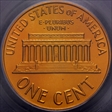
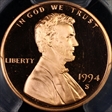
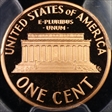
_album.jpg)
_album.jpg)
